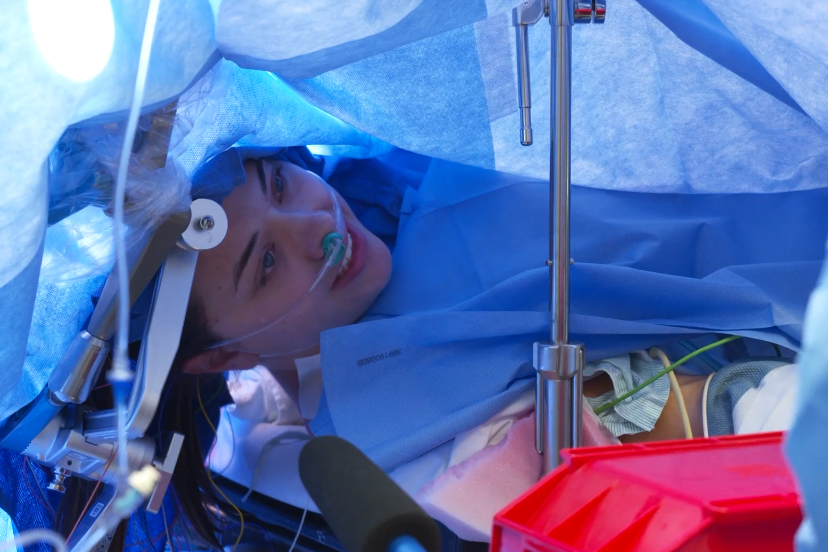A young woman in Dallas went under the knife in front of a live Facebook audience on Tuesday, in part to demonstrate that brain surgery is not rocket science — and it’s not as scary as some might think.

Jenna Schardt, 25, allowed the Methodist Dallas Medical Center to stream her 46-minute operation on Facebook Live Tuesday afternoon, in the hope that it would “educate and inspire” others to pursue a profession in medicine.
“They are going to show me pictures and I will be describing the pictures while they map out my brain,” she said in a statement released by the hospital ahead of the surgery. “I will be a very active participant in my own brain surgery!”
Doctors successfully conducted the surgery to remove a lesion in her brain that was affecting her speech and causing seizures. They spent much of the operation mapping out parts of her brain to avoid causing damage during the process of extracting the lesion.
The actual operation takes place behind a blue sheet that shields her brain — and any blood — from view.
Dr. Bartley Mitchell and Dr. Randall Graham performed the surgery while Dr. Nimesh Patel provided commentary, the hospital said.

Get weekly health news
Schardt, a graduate student in occupational therapy, stayed awake through much of the operation. She can be seen looking around and talking about her sensations at certain points in the video.
“I’m really thirsty … and I have double vision,” she tells doctors at the 30-minute mark. Her words are slightly slurred, and a tear can be seen running down her cheek.
She also makes chit-chat with an attendant who is monitoring her condition throughout the surgery.
“He’s basically distracting her to make sure that she stays relaxed,” Patel says at the 34-minute mark.
At one point in the video, the doctors explain that they are stimulating parts of Schardt’s brain bit by bit, then tagging those parts with sterile paper to make a map. This approach allows them to reach the lesion safely, they say.
“Jenna’s lesion is around some very critical areas in her brain,” Graham told ABC News. “What’s nice is, nowadays, we can have people awake during surgery to test on the surface of the brain to make sure we don’t do anything to affect her speech or motor skills.”
The entire video is still available for those interested in watching (and learning).
More than 96,000 users watched the video within 24 hours of it going live.
Schardt’s parents told journalists after the surgery that they are very proud of her.
The hospital later posted a photo of Schardt after her successful surgery.
“Thank you for your courage and your willingness to share,” the hospital wrote in a Facebook post on Monday evening.
“Well done, Jenna, well done.”










Comments
Want to discuss? Please read our Commenting Policy first.